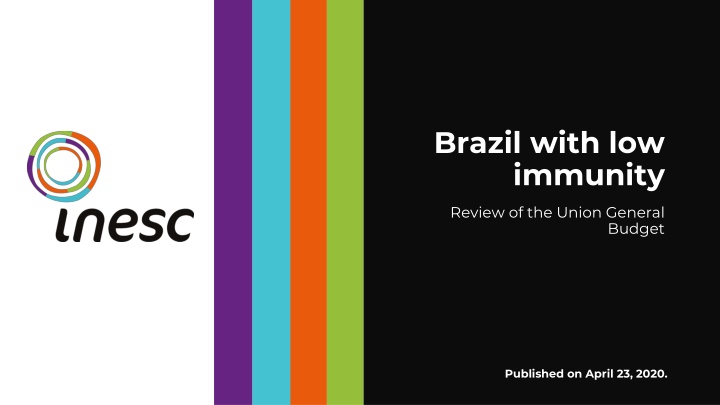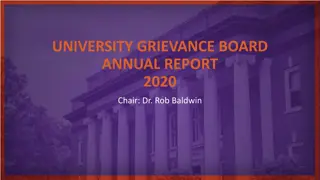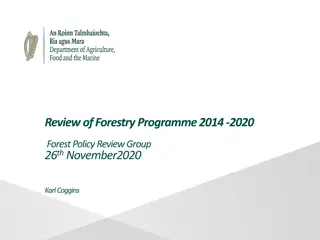
Impacts of Austerity Measures on Human Rights in Brazil
Explore the detrimental effects of austerity measures on human rights in Brazil, focusing on healthcare, education, indigenous rights, and more. The budget cuts have left Brazil vulnerable, especially in facing the challenges of the Covid-19 pandemic, impacting various marginalized communities disproportionately.
Download Presentation

Please find below an Image/Link to download the presentation.
The content on the website is provided AS IS for your information and personal use only. It may not be sold, licensed, or shared on other websites without obtaining consent from the author. If you encounter any issues during the download, it is possible that the publisher has removed the file from their server.
You are allowed to download the files provided on this website for personal or commercial use, subject to the condition that they are used lawfully. All files are the property of their respective owners.
The content on the website is provided AS IS for your information and personal use only. It may not be sold, licensed, or shared on other websites without obtaining consent from the author.
E N D
Presentation Transcript
Brazil with low immunity Review of the Union General Budget Published on April 23, 2020.
An annual report on the relation between budget and human rights What human rights areas are addressed? Why this study? 1. To analyze the impact of the austerity measures on government policies. 1. Health 2. Education 3. Child and Adolescent 4. Socio-environmental policies 5. Indigenous people 6. Women 7. Racial equality 8. Right to the City 2. To show the population that the public budget has to do with their day-to-day lives. 3. To show that the only way to ensure the realization of rights revenues and spending. is through public 4. To build arguments for the Suspension of Constitutional Amendment 95 Campaign, since we are part organizations that is doing advocacy with the Federal Supreme Court. of a coalition of
The austerity measures have left Brazil without immunity to face the impacts of the Covid-19 pandemic. Health spending has practically stagnated since 2014 and the budget enacted was underfunding in 5 billion dollars. With the Covid-19 crisis, the weaknesses of a chronically underfunded sector are exposed there aren t enough ICUs, PPEs, laboratories, and ventilators. The dismantling of women s policies made public services unprepared to respond to an increase in domestic violence triggered by social isolation. Spending on women s policies fell 75% in real terms between 2014 and 2019. The dismantling of the research budget makes it difficult to find a vaccine and medicines for Covid-19: research funding agency (Capes) budget was halved between 2015 and 2019.
The austerity measures increase the vulnerability of the most vulnerable Funding for the Function Urbanism was cut in 20% that represents less budget for sanitation, transport and houses. Poor people, mostly black people living in favelas, do not have ways to follows the hygiene standards recommended by health authorities; Funds to fight child labor was totally cut: in 2019 not a single real was spent. Today Brazil has 1.8 million children aged 5-17 who are working; The dismantling of racial equality policies hampers the fight against the structural racism that characterizes Brazilian society. Spending on this area dropped by 80% between 2014 and 2019. In 2019, only 1 million dollars were spent on oversight of indigenous lands, whose goals are to block deforestation and protect indigenous peoples. At the same time, we have the highest rate of indigenous people s murders in Brazil in 11 years.
Due to the austerity measures, the federal government s budget fails Inesc s test It is not fairly funded, since the poorest pay proportionally more in taxes; It does not mobilize the maximum of available resources, for it is subject to the Spending Cap (Constitutional Amendment 95) and other austerity measures, which reduce resources for those who need them most; It does not progressively realize rights, because in addition to cutting spending, it dismantles policies; It does not meet the nondiscrimination principle, for it dismantles policies focusing on women, blacks, and indigenous people. It does not promote social engagement, for the mechanisms to ensure this right have been eliminated or have become inoperative.
What Inesc proposes To fight the crisis in the medium and long term To face the consequences of the pandemic Promote a progressive tax reform; Transparency of tax expenditures to improve revenues; Strengthen the institutional framework to promote the rights of children, youth, women, blacks, and indigenous peoples. Regulate the law that determined the public mobility as a social right and provide universal basic sanitation. Suspension of Spending Cap Amendment and changes in other fiscal/tax rules; Massive injection of funds in health, social assistance (emergency cash transfer), labor market (protection of income and jobs, and of small and medium enterprises); Budget 2021 considers the impacts of pandemic.
Thank you Carmela Zigoni carmela@inesc.org.br For further information, visit www.Inesc.org.br









